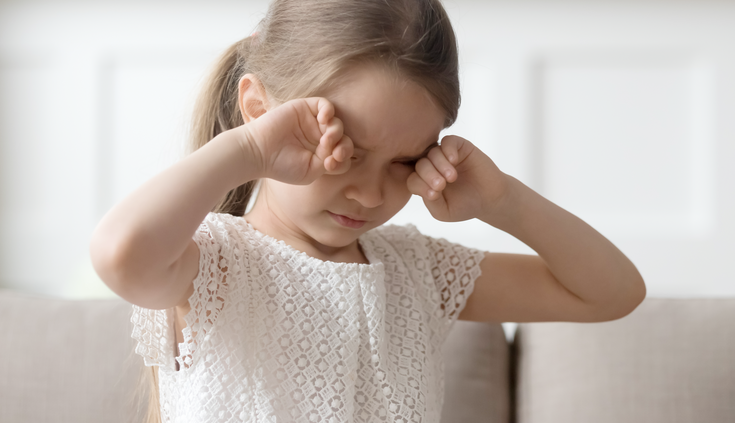More than half of 20-year-olds already wear glasses, and that number is growing. Find out how this works and what you can do to keep your child's eyes healthy.
Gym for your eyes
Why is playing outside good for childrens eyes? And what does it have to do with eyes?
Well, it's like this: when you play outside, you tend to look far away instead of close up. Looking far away is an important training for your eye muscles. In fact, cycling, running and playing outdoors is like a gym for your eyes!
Children become nearsighted more quickly if they look at things close up for a long time, for example at computer screens. With a fancy word, this is called ''myopia''.
In China, 90% of children under 16 are now nearsighted.
Youth News #searched
Inhibiting myopia
Short-sightedness is partly hereditary, but because of the many hours children spend behind a screen and the little time they have left to play outside, this ailment is taking on enormous proportions.
In order to curb myopia, the handy "20/20/2 rule" has been devised. This means: 20 minutes of close-up vision (such as looking at a screen, reading or doing homework) = 20 seconds of distant vision and 2 hours of playing outside each day.
This is extremely important, because it has been scientifically proven that if children watch too much on mobile phones and tablets and do not spend much time outdoors, they could become partially sighted or even blind in later life. If we do nothing, myopia will be the main cause by 2050.
Watch this short film with explanation of Professor Caroline Klaver
How to recognise eye problems in children
Almost 90% of sensory information in children comes through the eyes. It is therefore crucial that potential problems are spotted so early.
Keep an eye on your child, especially if eye problems run in the family. Do you recognise one or more of these signs in your child? Then contact your GP. The GP can give a referral to the right eye care.- Child trips a lot or runs into furniture
- Complaints of headaches or 'tired eyes
- Difficulty at school. This may be due to not being able to read the blackboard properly
- Sitting close to the television or computer
- Holding a book close when reading
- Cannot see well in the distance
- Lots of blinking
- Rubbing the eyes a lot
- Eyes often squinted

Sunlight & UV radiation
Protecting your child's skin from the sun is obvious, but what about their eyes? Children's eyes are particularly sensitive to UV radiation because they contain less pigment than adults' eyes. Too much sunlight can even lead to permanent eye damage! So protect your child's eyes well with a hat or cap with a wide brim or a good pair of sunglasses. And for the latter, we have some cool options.

Blue light
All around us are devices that emit blue light. Think of your smartphone, your computer and your television. Every time your child - or you yourself - uses a screen, it means exposure to blue light. This exposure can cause symptoms such as burning and tired eyes, headaches and difficulty falling asleep. Exactly how much blue light affects our eye health is still being studied.
What we do know for sure is that blue light has a negative effect on sleep. This is because it inhibits the production of the sleep hormone melatonin. Read more about blue light.
All our lenses are available with a blue light filter. Also for glasses without prescription!
